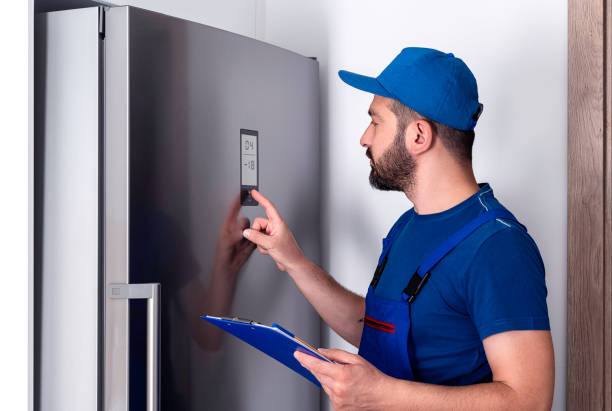A commercial ice machine that suddenly stops producing ice can create serious problems for any business. Many owners begin by searching for commercial refrigerator repair services, not realizing that ice machines often have their own set of issues. Understanding the most common causes can help you identify simple fixes before calling in a technician.
Technicians who work on ice machines often find that problems come from basic issues like water flow, temperature settings, or dirty filters. Addressing these quickly can restore normal operation and help avoid service interruptions.
Start by checking the power source. Make sure the machine is plugged in and that the breaker hasn’t tripped. It’s easy to overlook power connections, especially if the unit is tucked into a tight space. If the machine has a reset button, try using it after restoring power.
Water supply problems are another frequent cause. The machine can’t make ice if it isn’t getting enough water. Check the supply valve to make sure it’s fully open. Inspect the water line for kinks, clogs, or leaks. A blocked or frozen water line can stop production without warning.
Next, check the water filter. Over time, filters collect sediment and debris. A clogged filter restricts water flow and can cause the machine to shut down or produce thin, broken ice. Replacing the filter regularly keeps the machine running smoothly and improves ice quality.
If the machine is running but no ice is forming, inspect the condenser coils. Dirty coils can cause overheating and reduce cooling performance. Use a soft brush or vacuum to clean dust and debris from the coils. Make sure there’s enough space around the unit for proper airflow.
Temperature also plays a role. If the room is too hot or the internal temperature of the machine is too warm, it can’t form solid ice. Check the location of the ice machine and ensure it’s not placed near heat sources. If your model has a display, look for any error codes linked to temperature issues.
Low refrigerant levels can also prevent ice from forming, but this issue requires a licensed technician. Signs include hissing sounds, rapid ice melting, or the machine running non-stop without producing ice. Shut down the unit and schedule service if you suspect this problem.
Blocked or dirty ice molds may also be the culprit. Ice won’t form or drop properly if buildup is present. Clean the molds using warm water and a soft cloth. Do not use harsh chemicals, as they can damage parts and affect ice safety.
If you’ve gone through these checks and the machine still isn’t working, professional service may be needed. A technician can inspect electrical components, test the compressor, and diagnose deeper system problems.
To keep your commercial ice machine running reliably, perform regular cleaning, change filters on time, and respond quickly to performance changes. Simple maintenance and early troubleshooting can prevent bigger problems and help your business stay on track.













